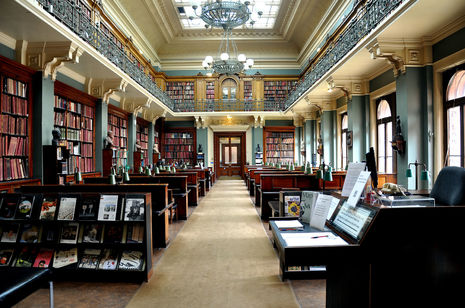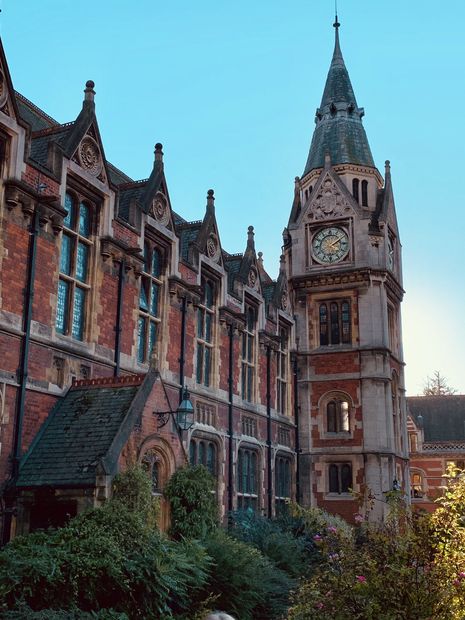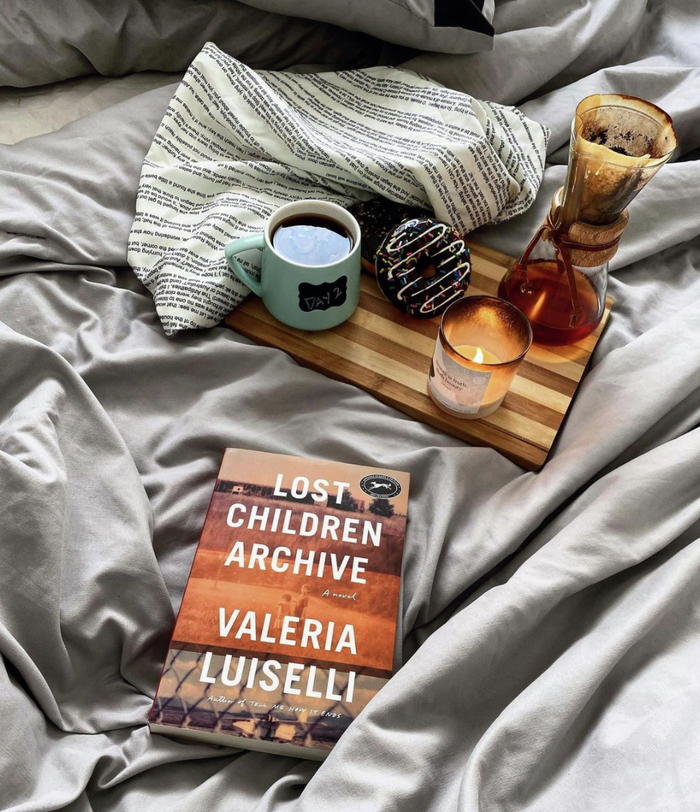A Love Letter to Libraries
In light of the proposed funding cuts of the V&A National Art Library, Margherita Volpato reflects on her relationship with libraries and a year without one.

In February 2021, the Victoria and Albert Museum announced a restructuring of its National Art Library (NAL), the biggest collection of reference literature on the arts in the UK and among the four largest in the world. By now we’ve begun to see the impact of Covid-19 beyond just the stay-at-home orders, with shops and public places having to adjust in any way they can to avoid closing. The National Art Library might not be any different. The V&A announced that library staff will be reduced from 30 to possibly less than 10. This was met with justifiable public outrage. The Art Newspaper reported on March 18th that more than 100,000 people have signed a petition opposing the cuts, which, alongside the extension of the furlough scheme, has resulted in a U-turn: all staff will keep their jobs. This is a great win; as Laura Cummings from the Observer pointed out, it would have been the equivalent of shutting down the British Library for a year and cutting a third of its staff. But this comparison begs the question: how did it come to this?
Of course, Covid-19 has brought about much change and uncertainty. Indeed, no-one is entirely clear on what the future of the NAL or its staff will be when it reopens this spring. Many local libraries have also had to close, some (though not all) permanently. While the NAL is an incredible source of material on art history for enthusiasts and academics alike, its claims that it will ‘open up access’ have raised questions. How will fewer staff be able to deal with (supposedly) more demand, especially when, because it is a reference library, its material is not borrowable and must be accessed on site with the help of staff? Surely, if managed poorly, this might be another step towards reduced access to the arts for the general public; it all seems very unclear. But why have libraries, the arts, and the humanities been neglected as they have in the wake of Covid-19 damage-control?
“But library cuts and closures are endemic, and predate the pandemic we’re currently living through.”
It worries me because key stages of my life – moving schools, houses or country – have always brought the prospect of a new library. When I was living in Canada, on Thursdays our class would take a trip to the school library which at the time felt huge; however, I’m sure that if I ever get the chance to revisit I’d experience a paradigm shift. On that day everyone had to take out at least one book to read that week; then, all huddled together in a cosy nook on faded and (lovingly) worn beanbags, the librarian would read us a book, very often by Robert Munsch. Then we would discuss it, which, in hindsight, might explain why I’m so opinionated in my supervisions.

Similarly, when I moved to the UK, I practically lived in the small library in my secondary school and read almost every book in there. I also remember the first time I took an ‘academic’ library trip, and got lost in the Senate House Library in London. Perhaps, as an English student, it’s always been a comfort thing to seek out the closest book-haven. But surely it is for everyone. Having the security of a local library where you can access books, movies, and a computer is fundamental for individuals and communities. But library cuts and closures are endemic, and predate the pandemic we’re currently living through.
“The lack of centralised publicity is stopping children, and adults, from accessing their local libraries and all the amenities they offer. ”
Charities like The Library Campaign are committed to maintaining and growing public libraries, making them as accessible as possible. But the struggle to make these resources available is on-going. For example, the BBC announced during the pandemic that they would offer every child a free e-book (the same one for everyone) a week. Public libraries already do this – people just didn’t know! The lack of centralised publicity is stopping children, and adults, from accessing their local libraries and all the amenities they offer. Most libraries in England, like our own Cambridge County library, allow you to access e-books from Libby, an app you can download for free, once you’ve registered; libraries in Wales even have a centralised website from which they organise resources and information. But no-one can predict what the future of libraries will look like after the pandemic. Most importantly, have our remote needs made libraries unnecessary?
For me, a library is not just what it offers. Whilst not the same, I’ve felt the closure of my college library keenly this term. I miss being able to find almost every book I need, with their pencil-filled margins that are so unlike my pixelated screen. I miss my seat – yes, I am a creature of habit and only change when forced by more spontaneous library buddies. I miss the pipes that creak when the central heating turns on; I miss the soft chairs with their hard backs; I miss the walls lined with books, which hid me just enough to help me get into that mystically liminal ‘zone’; I miss seeing people also struggling to get through their workload. All of these are more than resources – they make up that magical ‘library experience’. Like every other library I’ve inhabited, my college library is a fragment that’s become irreplaceable in my time at Cambridge. These experiences are not exclusive to me, or even to Cambridge libraries. They will all be missed when local libraries close, alongside the community and solidarity that is centred in these experiences.
By merging the National Art Library, the V&A Research Institute, and the V&A Archives ‘into one [supposedly] centralised, expanded research facility’ the museum will be reducing its spaces for academics and the public alike. Throughout all their changes they’ve forgotten the importance of a physical library and of making the site itself as accessible as possible. Furthermore, with the UK Government announcing potential cuts of up to £1 billion in research, the stability of these institutions is as precarious as ever. We must protect libraries, academic and local, if we want to continue to make information, resources, and that indescribable ‘library experience’ – which I’ve been trying so hard to capture – accessible. It’s clear that I love, and sort of live, in libraries. I hope that some of you feel that same, and that together we can help to maintain libraries now that they’re at their most vulnerable.
Link to petition.
 News / Clare Hall spent over £500k opposing busway 24 December 2025
News / Clare Hall spent over £500k opposing busway 24 December 2025 News / Caius mourns its tree-mendous loss23 December 2025
News / Caius mourns its tree-mendous loss23 December 2025 Comment / The ‘class’ of Cambridge24 December 2025
Comment / The ‘class’ of Cambridge24 December 2025 Comment / Yes, I’m brown – but I have more important things to say22 December 2025
Comment / Yes, I’m brown – but I have more important things to say22 December 2025 Interviews / Politics, your own way: Tilly Middlehurst on speaking out21 December 2025
Interviews / Politics, your own way: Tilly Middlehurst on speaking out21 December 2025










